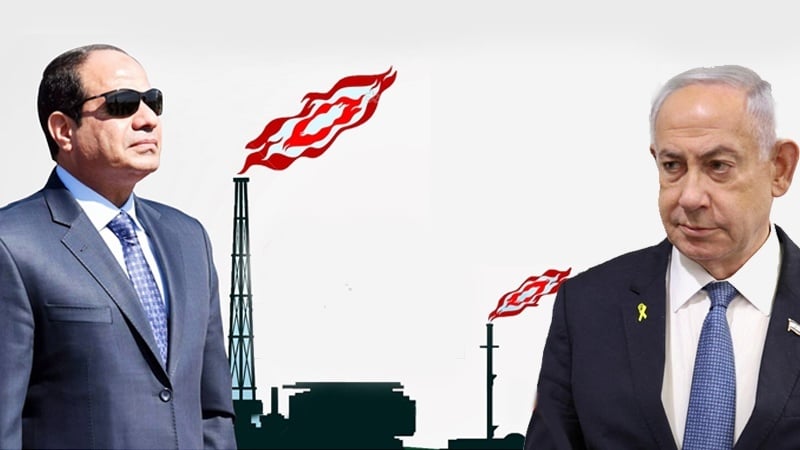Pars Today — Some Egyptian military experts have responded to the Zionist regime’s gas-related threats against Cairo, stating that Tel Aviv cannot use gas as leverage against the country.
Al-Hadath network reported on Egypt and Israel: As tensions escalate between Egypt and Tel Aviv over Israel’s claims of strengthened Egyptian military deployment in Sinai, and amid threats from Israel’s energy minister Eli Cohen regarding non-compliance with the massive gas deal with Egypt, as well as comments by Israel’s war minister Israel Katz about turning the border area with Egypt into a closed military zone, Egyptian military experts stated that the gas agreement would not serve as leverage.
According to Pars Today, Zia Rashwan, head of Egypt’s Information Authority, said: “Egypt has sent clear messages to Israel regarding its forces in Sinai.”
On the other hand, Wael Rabie, a regional and Israeli affairs expert, said: “What Israel is presenting is part of a media and domestic consumption war, aimed at portraying itself as being threatened from outside. This is a method Netanyahu resorts to during internal crises. The Israeli energy minister’s remarks regarding the gas agreement are also in this context and under Netanyahu’s directive.”
He emphasized that the agreement involves the supply of 130 billion cubic meters of gas from the Leviathan field until 2040 and includes strict penalty clauses that make Israel’s withdrawal from the deal difficult, as it would incur billions of dollars in financial losses.
He stressed that suspending or halting this gas agreement benefits Egypt rather than harms it, for three reasons:
First: Indicators announced by Egypt’s Prime Minister show that the country will achieve gas self-sufficiency by 2027.
Second: Cairo’s shift toward wind and solar energy, which reduces dependence on gas.
Third: It concerns Egypt’s nuclear reactor, which is set to begin operations in 2027, ensuring Egypt’s energy and gas self-sufficiency.
Major General Rabie explained that the presence of Egyptian armed forces in Sinai does not violate the agreement; on the contrary, it is in accordance with the 1979 peace treaty.
He emphasized that the forces Israel refers to are counter-terrorism units and border guards stationed in Sinai to secure Egypt’s borders against all threats, including smuggling operations and any potential terrorist activities.
Osama Kamal, Egypt’s former oil minister, told Al-Hadath: “Israeli gas is no longer a factor influencing the balance of Egypt’s energy market. Israel, given its increasing dependence on these revenues to meet its economic needs, has suffered the most from the recent halt in gas exports.”
He also emphasized that Egypt will under no circumstances allow the gas issue to be used as a political leverage against it, and that in the event of any overt and official obstinacy by Israel, the Egyptian government has important measures ready to respond at the appropriate time.
Osama Kamal stressed: “If the Israeli prime minister suspends or cancels the gas agreement, the decision will face backlash from the Knesset due to its direct negative impact on the economy.”
He said: “Cairo has an integrated system that provides it with strategic flexibility and the ability to respond to any geopolitical or economic changes affecting global gas markets.”
Osama Kamal added: “Egypt is continuously working to diversify its energy supply sources, enabling it to maintain stability and long-term planning independently of regional pressures or unilateral decisions by its partners.”
He concluded by emphasizing: “The Egyptian government has a vision focused on becoming a regional energy hub, which will enhance its position as a key link between gas producers in the Eastern Mediterranean and European and Asian markets seeking energy alternatives amid global turmoil.”
It is worth noting that Eli Cohen, Israel’s energy minister, announced his opposition to completing the massive gas deal with Egypt for political and economic reasons, stating that he will not sign the gas export agreement to Egypt before securing Tel Aviv’s security interests.
